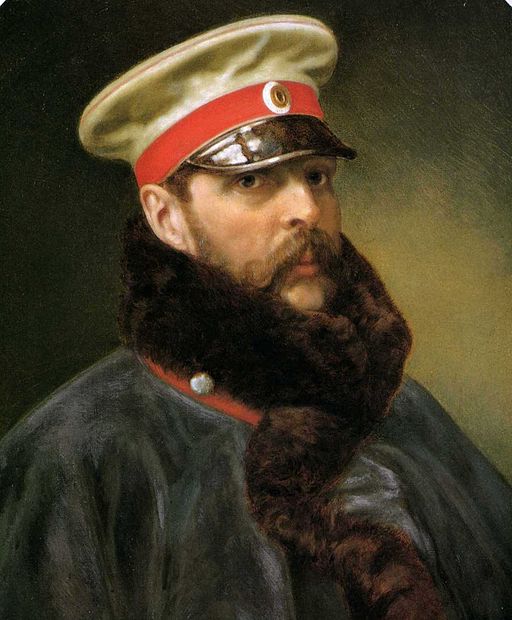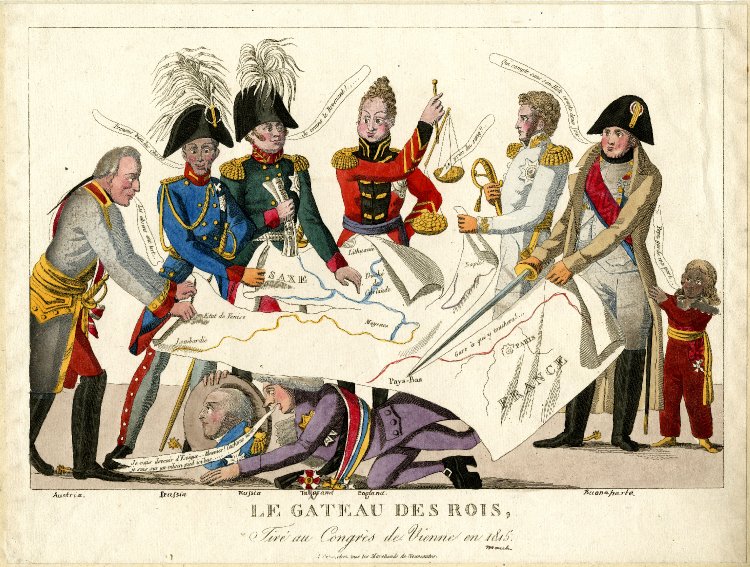Chapter 1.10: Past Wrongs Unrevenged
1.10: Past Wrongs Unrevenged
十, 靖康恥猶未雪

The Great Reformer, Alexander II of Russia
Mankind though, mankind is exceedingly stupid. Case in point, the Great War; and to understand the Great War, let us review Europe in the mid-19th Century, the continent at the center of the world which this author has long neglected.
35 years after Napoleon I’s ascension to the French throne, the Napoleanic world order was crumbling. The egotistical Napoleon II had failed to reign in his father’s generals, instead leaving the Marshals of the Empire to take the reins of power. After 20 years of L’Aigon’s (or more accurately his Marshal’s) bumbling, ineffectual rule, the Empire was struck by triple crises: first, the economic shock of the Indian textile boom, where textile and cotton prices crashed across Europe. Second, the European Revolutions of 1848, where the impoverished dregs of society emerged from their slums to overthrow the Napoleanic order. Finally, the German War, where Austria and Prussia united to throw out French hegemony, reaching as far West as the Rhine before they were chased out. Each crisis had directly set the stage for the next, and the result was an Empire on the retreat.
The Congress of Vienna was held in 1849 after the end of the German War to redraw the borders of the continent. No longer was France ruler of all she surveyed--the Great Powers of Europe had returned with a vengeance.
The Congress determined that Europe would be carved out into 3 blocs: the Russian, the British and the French. Prussia and the North German states were allied with Britain, Austria with Russia, and the remainder went to France. The Congress’ verdict was that France no longer deserved uncontested rule over Europe--but there was a notable absence of Germans at the round table. The theory was that a tripartite division of Europe was the most stable. If France grew too powerful, Russia and Britain would cut it down to size; if Britain grew too powerful, France and Russia would do the same. Europe would always rebalance itself. The Congress did not intend to keep the peace--it merely intended to keep the balance.

The "three policemen" of Europe--Russia in green, Britain in red, and France in the bicorne--tear apart the continent
For a Congress that was held in German land to discuss the end of a German war, there was a notable lack of Germans in the decision-making process. The German question: that of growing pan-nationalism and anti-French sentiment had not been resolved, not that the great powers were at all interested in creating a powerful insurgent Central European power; and for the two subsequent decades, there emerged no serious challenge to European stability. The 3 “policemen of Europe” fought proxy conflicts amongst each other of course, and there would be minor wars in the Ottoman Empire, Italy and Spain, but nothing shook Europe by it’s foundations. Nothing until the year 1868.
Taking a detour into the aforementioned Ottoman Empire, there lies an Empire on the decline. Nader Shah’s invasions of Mesopotamia a century hence had been ultimately unsuccessful, but they had left a deep scar on the Mashriqi and Ottoman psyche. The presence of a credible challenger to Ottoman hegemony, an Iranic challenger friendly to Shi’a Islam riled up Kurds and Shi’a Arabs alike. There was also the British occupation of Algeria and French occupation of Tunis--all signs pointed to the destruction of the Ottoman Empire.
Russia felt that if the Ottoman Empire was to fall, they deserved a piece of the cake too. Russia had not taken out any concessions from the Sultan since the Congress of Vienna, and it was only fair that they strike now. But the dastardly Europeans had broken their oath to maintain the balance of power: the Ottoman Empire had slowly drifted into French orbit, whilst Britain was fresh off it’s conquest of Iran. Russia had been fully blocked off from the Indian Ocean and felt as though under siege.
Truth was that Britain and France both feared Russia. Ever since Alexander I took the throne, the Russian Empire had undergone reforms at breakneck pace. Chancellor Pavel Pastel had abolished serfdom; Chancellor Obolensky had broken the back of the feudal lords; Chancellor Nikolay Milyutin had established the country’s first democratic Parliament. Sure, Russia was still a land of pampered aristocracy and political oppression; sure, the Tsar still held more power than any contemporary Western monarch, but the spectre of Eastern autocracy was fading quickly. Economic development went hand in hand with political emancipation: a rising middle class brought European industry into the Ukranian heartland; industrial farming into Belarus; and a booming financial sector into Russia herself.
In short, London and Paris could agree that if they did not unite to bring down the Russian bear now, the balance of power in Europe would be forever broken. The West most feared a powerful maritime Russia, a Russia that broke out of her Inner Eurasian confines by way of Persia and Anatolia. And so when Russia sought to take a bite out of the Ottoman Empire, the West fought back and guaranteed Turkish independence.

The Ottoman Army, modernised along French lines
Russia also operated with a sense of urgency. They were not blind to the West’s machinations. They watched in horror as Afsharid Iran fell under the occupation of Sepoy redcoats, and now watched as the French positioned themselves to do the same with the Ottoman Empire. Russia must strike South before it was completely boxed in.
On June 13th 1868, the Russian frigate Alexander Nevsky spontaneously exploded off the Anatolian Black Sea coast. Moscow accused Konstantinyee of sending saboteurs; whereas Konstantinyee accused Moscow of a false flag incident. No matter the truth of things, Russia marched South into Dobruja and Turkish Armenia. France demanded Russia stand down, and as smoke emerged from the chimneys of the Russian embassy in the heat of Parisian summer, Marshal of the Empire Patrice de MacMahon ordered a general mobilization of the French army. For the first time in half a century, the European titans were at war. French troops arrived in Dobruja by September and halted the Russian advance; whereas the Russian navy was easily swatted aside by the far superior French armada.
:max_bytes(150000):strip_icc()/battle-of-sedan-large-56a61be65f9b58b7d0dff50b.jpg)
King of Holland Charles Louis Napoleon Bonaparte discusses the war in the Poland with Prussia's Chancellor Bismarck
The nationalist ideology had spread East from France. Though German nationalism had been to France’s detriment 2 decades hence, it now played right into Marshal MacMahon’s hands. Prussia was properly terrified of Russia, perhaps even moreso than France; and rightly feared the Austro-Russian alliance. When Russian troops led by Field Marshal Yevfimiy Putyatin entered the Duchy of Warsaw, Frederick William IV of Prussia went into meltdown. Prussia soon joined the grand Western coalition by intervening in Poland, and German nationalists rallied around the Prussian banner. Meanwhile, the Duchy of Warsaw took after Revolutionary France and ordered a levee en masse. Every man and child fit enough to fight was given a gun, many of which were crude, antiquated Napoleonic designs. Poland rallied to the defence of the West, and battle was joined at the field of Ludwin.
The West was routed at Ludwin: the West had entered this war with Russia with rather racist expectations of the innumerable Slavic horde. Instead, they were greeted by a well-trained, well-drilled and well-equipped professional army. The Prusso-Polish army fled towards Warsaw where they would make a valiant, but futile last stand.

Russian and Polish horsemen clash at Ludwin
Smelling blood in the water, the Austrians came to the aid of their Russian ally. Austria marched into Silesia without so much as a declaration of war. Prussian border guards were overwhelmed and the road to Berlin seemed completely open. This would be an extremely unpopular move amongst German speaking Austrians, at least the intelligentsia; whereas the Hungarians were tacitly supportive as long as the war was swift and bloodless. France was determined to crush these delusions of grandeur. French leadership bore a particular grudge against Austria, as it was the Hapsburg ingrates whom first fanned the flames of the German War. France relished any chance to beat down the uppity Hapsburgs and restore it’s hegemony over the continent. By the end of 1868, all of Europe was in flames.
Britain too saw opportunity. London and Delhi both had long sought a way to win the Great Game once and for all, to expel Russia from Central Asia and perhaps the Caucasus. Destroy Russia here, and the road to Pax Britannica was wide open.
And so the pendulum that had swung so far in Russia’s favour began to swing backwards.
Last edited: